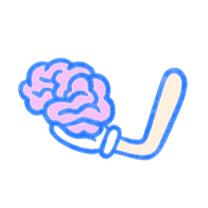Ethics & Confidentiality Scenarios on the ADC Exam: What You Need to Know
If you’re preparing for the Alcohol and Drug Counselor (ADC) exam, you’re likely already brushing up on your knowledge of substance use disorders, treatment planning, and case management. But one of the MOST critical—and sometimes overlooked—areas of the exam is ethics and confidentiality. These aren’t just buzzwords; they’re foundational to safe, effective, and legal practice as a substance use disorder counselor.
Let’s examine how ethics and confidentiality are reflected in the ADC exam and how to approach these questions confidently.
Why Ethics and Confidentiality Matter in Counseling
The role of a substance use counselor is deeply personal. You’re entrusted with sensitive, often life-altering information. The ADC exam tests your ability to uphold ethical standards and legal obligations while maintaining therapeutic integrity.
Scenarios on the IC&RC ADC exam are designed to evaluate how you’d navigate complex situations involving:
- Confidentiality vs. duty to warn
- Client rights and informed consent
- Dual relationships and boundaries
- Ethical decision-making in ambiguous cases
Sample ADC Exam Scenario: Confidentiality
Scenario: You are working with a 17-year-old client who reveals during a session that they’ve been using heroin. They ask you not to tell their parents or any authority figures. What’s your next move?
What the exam tests:
- Understanding of confidentiality laws (including how they apply to minors)
- Awareness of your legal reporting duties
- Ability to maintain trust while ensuring safety
Key point: The correct answer usually hinges on whether there is an immediate risk to the client or others. Know when confidentiality can be broken legally—and when it must be upheld.
Sample ADC Exam Scenario: Ethical Boundaries
Scenario: A client invites you to attend their graduation ceremony as a thank-you for helping them stay clean. You feel honored and would like to go. What should you do?
What the exam tests:
- Your ability to recognize and manage dual relationships
- Understanding of professional boundaries
- Awareness of the impact on the therapeutic relationship
Key point: It’s tempting to say yes, but your responsibility is to the therapeutic boundary. The best response would involve discussing the invitation with the client and explaining the reasons for declining in a supportive way.
Study Tips for Ethics and Confidentiality Questions
- Use practice questions that simulate real-world dilemmas.
- Know your codes: Review the NAADAC Code of Ethics or the code relevant to your state.
- Think critically: These questions often have more than one “okay” answer—go with the one that’s MOST ethically and legally sound.
- Watch for key terms like “informed consent,” “mandatory reporting,” “HIPAA,” and “dual relationships.”
Ethical decision-making is not always black and white—and that’s exactly what the ADC exam reflects. By familiarizing yourself with realistic scenarios and best practices, you’ll be better equipped not only to pass the test but to succeed in your career as a trusted, professional counselor.
Build Your Confidence with ADC Test Prep
Looking for more ADC test practice? Check out Pocket Prep’s ADC test prep for hundreds of practice questions, personalized study plans, and feedback backed by learning science.

